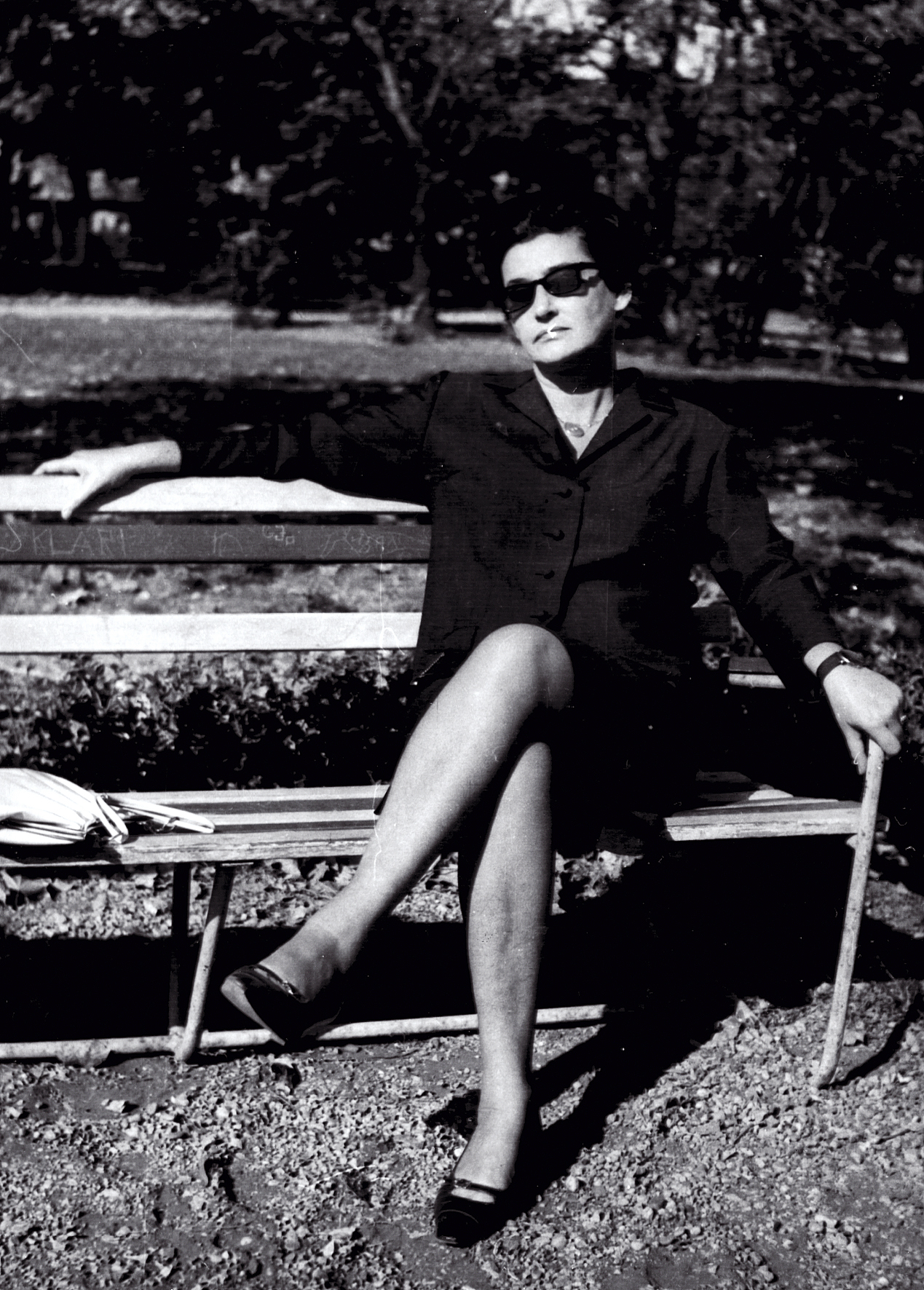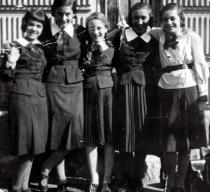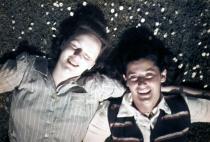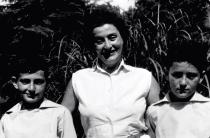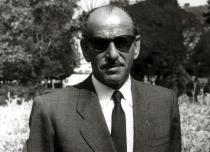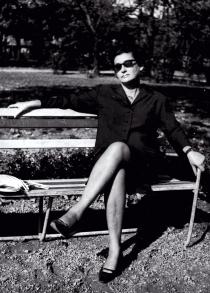This is me in a park in Gyor. The photo was taken some time during the 1960s.
When we came home completely alone from deporatation, I went to a friend of mine, with whom I had gone to Auschwitz, because I knew I had nobody, but she lived at somebody else's place as well, and we lived here and there in Gyor for a year. My poor first husband [Geza Szabados] had had a transportation company and I worked there, so I had no financial problems. His partner was very kind, he told me to go there - he didn't say that half of it was mine, but that he would give me something.
Then I met my second husband in Gyor. In fact, I had known him before the war. His name was Karoly Krausz. He was born in 1903. The fact that he was the last man who was with my first husband, and he could tell me about him, put us in touch with each other; and we got together somehow. He was alone, and I was, too. We got married in 1947. It was a civil marriage. We were on very good terms with the chief rabbi of Gyor, who later became chief rabbi in Vienna. I was 8-months pregnant and he often came to us. Once he came and I made some dinner - however, he ate only kosher, and we had no kosher food, but he ate it; he was religious, but he set little store by this - and then two couples who were friends of ours were there, and he held the marriage ceremony. So, we were blessed by a rabbi too, though at his request, because neither of us insisted on it. My son Andras was born in 1948, and Peter in 1949. Then I stayed home with them for years and didn't work.
In September 1952 I felt that I needed to leave the house. We had a domestic help. We were on very good terms with the deputy manager of the local OTP Bank [the Hungarian National Savings Bank], we were old friends, and he invited me to work three months at the OTP. And the three months turned into 25 years, and I retired to my pension from there. This was my only serious job: I was an internal auditor. In the meantime the children went to school; in those days, there were times when there was nobody to be with them, there was no domestic help, and they were quite independent at that time. There was a sort of school daycare; they ate there, they had a key and in the afternoon they came home.
During the Revolution in 1956 we thought a lot about leaving Hungary, we almost started, too, but my husband didn't want to; he said he was old and wouldn't start a new life. The children were little. I don't know if we did the right thing or not. We didn't go. Gyor was a passageway, many of our acquaintances left; they got on the bus in Gyor and got off in Vienna. The chief rabbi, with whom we were on very good terms, was already there, and he sent us a message telling us to come, that he would arrange everything. I needed only a push, but I didn't have the courage to take my chances because there were the two little children.
